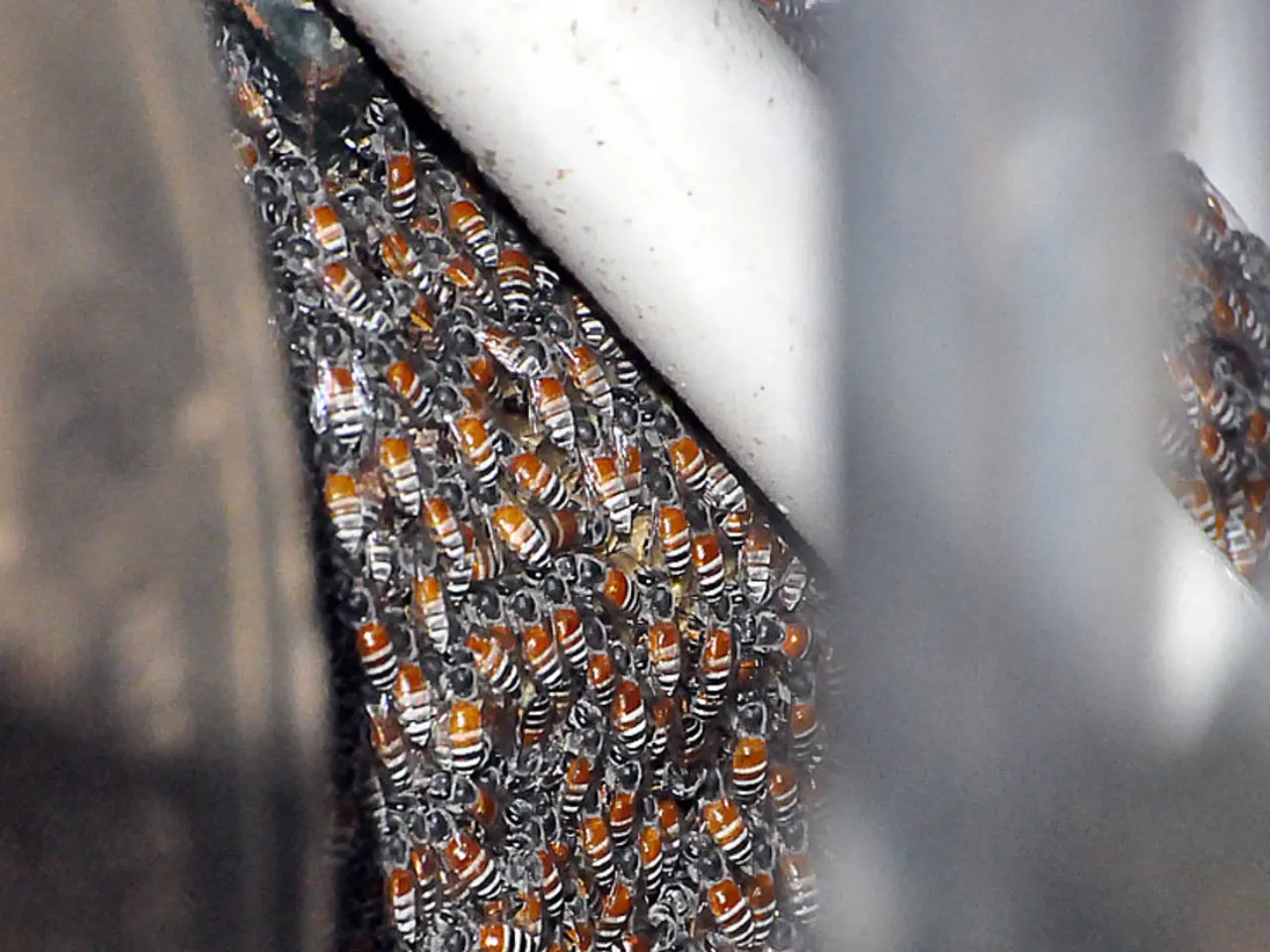European lawmakers endorse modification in honey origin labeling regulations
The European honey market is set for a significant transformation, with stricter labeling rules for honey mixtures officially initiated by Slovenia and due to come into effect on January 1, 2025[1][4]. These regulations aim to provide consumers with clearer, more precise information on honey packaging, enhancing transparency regarding the composition and quality of honey products.
The new regulations are expected to have a ripple effect on the honey market and beekeepers, ushering in a new era of market transparency, quality assurance, and potential market differentiation.
Market Transparency
With the new regulations, consumers will be better equipped to understand what type of honey they purchase, differentiating between pure honey and blends. This could potentially influence buying behavior and demand[4].
Quality Assurance
Producers and beekeepers will need to ensure compliance with the new labeling regulations to maintain market access. This could encourage higher-quality production and better traceability, ensuring that consumers receive authentic honey products.
Administrative and Compliance Burden
However, the stricter labeling rules may impose additional administrative effort and costs on beekeepers and honey producers[4]. This is consistent with the broader trend of increased regulatory compliance costs seen across EU food labeling regulations.
Market Differentiation
More detailed labeling could enable small-scale beekeepers and premium honey producers to differentiate their products clearly from mass-produced or blended honey, possibly creating new market opportunities.
Impact on the Future of European Beekeeping
The changes in the honey regulations are expected to significantly impact the future development of European beekeeping, potentially shaping the economic environment for European beekeepers[4].
The European Commission has also proposed the formation of a high-quality traceability system to limit fraudulent activities in the production of honey, fruit juices, jams, jellies, and chestnut puree[1].
The initiative for this proposal was led by Slovenia and supported by several beekeeping associations in Europe, including the Serbian Federation of Beekeeping Organization[1]. The European Parliament (EP) has agreed to the proposal, and the EU Council will give its opinion on the proposal, after which negotiations between the two institutions will begin[1].
Once implemented, the new regulations are expected to affect the creation of real honey prices, as consumers will be able to make clear decisions about the purchase of honey based on the countries of origin listed on the label[4]. If honey or fruit come from several countries, the countries of origin must be listed on the label in descending order according to the share they represent in the final product[1].
In conclusion, the new honey labeling regulations in Europe aim to enhance consumer information and transparency, shaping product labeling practices, market competitiveness, and potentially the economic environment for European beekeepers.
[1] European Commission. (n.d.). Proposal for a regulation of the European Parliament and of the Council on the transparency of information to consumers in the field of foodstuffs. Retrieved from https://ec.europa.eu/info/law/better-regulation/have-your-say/initiatives/12929-Regulation-on-the-transparency-of-information-to-consumers-in-the-field-of-foodstuffs
[4] European Food Information Council. (n.d.). New Honey Labeling Regulations in Europe: What You Need to Know. Retrieved from https://www.efic.org/news/new-honey-labeling-regulations-in-europe-what-you-need-to-know/
- The new honey regulations, implemented by Slovenia, target health-and-wellness by providing consumers with more precise information about honey products.
- The stricter labeling rules may influence the lifestyle choices of consumers, affecting the demand for fitness-and-exercise, nutrition-focused food-and-drink, and global-cuisines.
- As a result of the regulations, political attention will be drawn to policy-and-legislation surrounding the food industry, with potential impacts on general-news.
- The new regulations could lead to a shift in the European beekeeping industry, promoting healthy-cooking and quality assurance, fostering a competitive market in health-and-wellness.
- Producers will need to adapt to the administrative and compliance burden imposed by these stricter rules, mirroring trends observed in other EU food labeling regulations.
- The global implications of these labeling initiatives extend beyond the honey market, inspiring other regions to embrace transparency and traceability in their food labeling policies.




